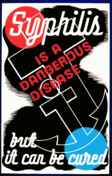Portal:Human sexuality
| Main page | Recognized content | Subcategories |
Welcome to the human sexuality portal
Human sexuality is the way people experience and express themselves sexually. This involves biological, psychological, physical, erotic, emotional, social, or spiritual feelings and behaviors. Because it is a broad term, which has varied with historical contexts over time, it lacks a precise definition. The biological and physical aspects of sexuality largely concern the human reproductive functions, including the human sexual response cycle.
Someone's sexual orientation is their pattern of sexual interest in the opposite and/or same sex. Physical and emotional aspects of sexuality include bonds between individuals that are expressed through profound feelings or physical manifestations of love, trust, and care. Social aspects deal with the effects of human society on one's sexuality, while spirituality concerns an individual's spiritual connection with others. Sexuality also affects and is affected by cultural, political, legal, philosophical, moral, ethical, and religious aspects of life.
Interest in sexual activity normally increases when an individual reaches puberty. Although no single theory on the cause of sexual orientation has yet gained widespread support, there is considerably more evidence supporting nonsocial causes of sexual orientation than social ones, especially for males. Hypothesized social causes are supported by only weak evidence, distorted by numerous confounding factors. This is further supported by cross-cultural evidence, because cultures that are tolerant of homosexuality do not have significantly higher rates of it.
Evolutionary perspectives on human coupling, reproduction and reproduction strategies, and social learning theory provide further views of sexuality. Sociocultural aspects of sexuality include historical developments and religious beliefs. Some cultures have been described as sexually repressive. The study of sexuality also includes human identity within social groups, sexually transmitted infections (STIs), and birth control methods. (Full article...)
Selected article
Sexually transmitted infections have been well known for hundreds of years, and venereology is the branch of medicine that studies these diseases. While in the past, these illnesses have mostly been referred to as STDs or VD, the term sexually transmitted infections (STIs) has been preferred by many up-to-date medical sources, as it has a broader range of meaning; a person may be infected, and may potentially infect others, without having a disease. (Full article...)
Selected image
Did you know


- ... that in the United States, sex in public bathrooms is more frequent in bars than in restaurants?
- ... that the brothel Bon Ton is described by the BBC as "an ideal showcase for New Zealand-style liberalisation"?
- ... that She Has a Name is a Canadian play about child prostitution in Thailand?
- ... that Haesindang Park (pictured), on the eastern coast of South Korea, is also known as "Penis Park", due to its statues representative of phallic architecture ?
- ... that the Chonga (Chonga style pictured) has become a Miami icon, influencing fashion in South Florida and beyond?
- ... that North Preston's Finest is a gang of pimps based just northeast of Metropolitan Halifax in Nova Scotia, Canada?
May - December 2012
Human sexuality in the news
- 18 May 2024 – LGBT rights in Peru
- Hundreds of protesters march in Lima, Peru, to demand the reversal of a new law that describes transgender people as having a mental illness. (Reuters)
Get involved
For editor resources and to collaborate with other editors on improving Wikipedia's Human sexuality-related articles, see WikiProject Sexology and sexuality.
Topics
Tasks

- Cleanup listing for WikiProject Sexology and sexuality — bot-generated list of articles within the scope of this WikiProject tagged as needing attention
- Cleanup listing for WikiProject LGBT studies — bot-generated list of articles within the scope of this WikiProject tagged as needing attention
Related portals
Associated Wikimedia
The following Wikimedia Foundation sister projects provide more on this subject:
-
Commons
Free media repository -
Wikibooks
Free textbooks and manuals -
Wikidata
Free knowledge base -
Wikinews
Free-content news -
Wikiquote
Collection of quotations -
Wikisource
Free-content library -
Wikiversity
Free learning tools -
Wiktionary
Dictionary and thesaurus






















